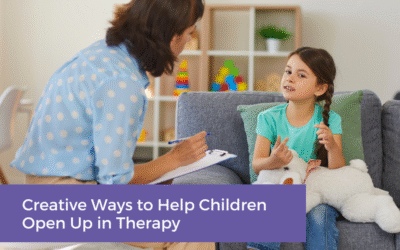Understanding Anxiety.
Causes, Symptoms, and Support
Navigating Anxiety
Anxiety is a common emotion that everyone experiences at some point. It can manifest as worry, nervousness, or fear and often occurs in response to stress or uncertain situations. However, anxiety can become problematic when it interferes with daily life, work, or study, lasting for more than six months. This type of persistent anxiety may require attention and treatment.

Types of Anxiety
There are various types of anxiety, each with distinct characteristics:
- Generalised Anxiety Disorder (GAD): Persistent and excessive worry about various aspects of life.
- Panic Disorder: Recurrent panic attacks involving sudden, intense fear and physical symptoms like heart palpitations.
- Social Anxiety Disorder: Intense fear of social situations and being judged by others.
- Specific Phobias: Irrational fear of specific objects or situations, such as heights or spiders.
- Separation Anxiety Disorder: Most common in children, involving excessive fear of being apart from loved ones.
What causes Anxiety
Anxiety can arise from a combination of internal and external factors:
Internal Factors
- Genetics: A family history of anxiety can increase the likelihood of experiencing it.
- Brain Chemistry: Imbalances in neurotransmitters may play a role.
- Personality: Certain personality traits, such as perfectionism, can contribute to anxiety.
External Factors
- Stressful Life Events: Events like job loss, divorce, or trauma can trigger anxiety.
- Environment: High-stress environments, including work or school, can increase anxiety.
- Health Issues: Chronic illnesses or significant health concerns can cause anxiety.
Symptoms of Anxiety
Common symptoms include:
- Excessive worrying
- Restlessness or feeling on edge
- Fatigue
- Difficulty concentrating
- Irritability
- Muscle tension
- Sleep disturbances


Treatment Options
Effective treatment options for anxiety include:
- Acceptance and Commitment Therapy (ACT): Focuses on accepting negative thoughts and feelings rather than fighting them, while committing to personal values.
- Cognitive Behavioural Therapy (CBT): Helps individuals identify and challenge negative thought patterns and develop coping strategies.
- Eye Movement Desensitisation and Reprocessing (EMDR) Therapy: Utilises eye movements to process and reduce the impact of traumatic memories.
Did you know?
- Anxiety disorders are the most common mental health disorders in Australia, affecting about 1 in 4 people at some point in their lives.
- Women are more likely to experience anxiety than men.
- Anxiety can affect people of all ages, including children and older adults.
- Anxiety often coexists with other mental health conditions, such as depression.
- Early intervention and treatment can significantly improve outcomes for individuals with anxiety.
Seeking Support
It can be very valuable to seek treatment and support if anxiety is impacting your daily life. Remember, you are not alone, and help is available. Speaking with a mental health professional can provide you with strategies and treatments to manage and reduce anxiety effectively.

How We at The Therapy Hub Can Help with managing Anxiety
At The Therapy Hub, we understand the challenges that come with anxiety and are here to support you through it. Our team of experienced therapist and psychologists offers a range of services tailored to meet your needs, including:
- Acceptance and Commitment Therapy (ACT): Our therapists help you embrace your thoughts and feelings while committing to behaviours that align with your values.
- Cognitive Behavioural Therapy (CBT): We guide you in recognising and changing negative thought patterns and behaviours.
- Eye Movement Desensitisation and Reprocessing (EMDR) Therapy: We use this effective method to help you process and reduce the impact of traumatic memories.
We provide support for individuals of all ages, including specialised services for children experiencing separation anxiety. Our goal is to help you regain control of your life and improve your overall well-being.
Anxiety is a natural emotion, but when it becomes overwhelming and persistent, it can significantly impact your quality of life. Understanding the causes and symptoms of anxiety and exploring effective treatment options can help you take the first steps towards managing it. Always remember that seeking support is a sign of strength, and with the right help, you can navigate through anxiety towards a healthier, more balanced life.
If you or someone you know is struggling with anxiety, reach out to The Therapy Hub for guidance and support. Your well-being is important, and we are here to help you through this. Contact us today to schedule an appointment..
Creative Ways to Help Children Open Up in Therapy
Creative ways to help children open up in therapy using life story work, art, play, and storytelling to support communication, connection, and healing.
Why Do So Many Men Avoid Therapy?
Why do so many men avoid therapy? Let’s explore the myths, stigma, and small changes that can help men get support before things reach breaking point.
7 Common Myths About Men’s Mental Health (and What We Need to Say Instead)
7 Common Myths About Men’s Mental Health (and What We Need to Say Instead)—let’s bust the myths that stop men from getting real support and connection.
Enquire about how we can support you.
"*" indicates required fields









